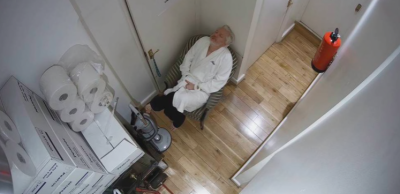Julian Assange Spying Case: Judge Suggests CIA May Have Received Illicitly Recorded Conversations
Proving that US intelligence services learned about the WikiLeaks founder’s defense strategy by spying on his lawyers could annul the extradition request, say legal sources

All Global Research articles can be read in 51 languages by activating the “Translate Website” drop down menu on the top banner of our home page (Desktop version).
To receive Global Research’s Daily Newsletter (selected articles), click here.
Visit and follow us on Instagram, Twitter and Facebook. Feel free to repost and share widely Global Research articles.
***
The conversations between Julian Assange and his lawyers illicitly recorded by the Spanish security company UC Global at the Ecuadorian Embassy in London, where the WikiLeaks founder took refuge for years, could have been delivered to agents of the US secret services, according to Santiago Pedraz, the judge at Spain’s High Court, the Audiencia Nacional, in charge of the espionage case.
Delivery to the Central Intelligence Agency (CIA) or to US authorities of details about the defense strategy of the cyberactivist, whom the US wants to have extradited from the UK, is reflected in a court order issued by Pedraz to which EL PAÍS has had access. In this document, which deals with procedural issues, the judge explains to the British authorities why he needs to take witness testimony from the British lawyers and Assange’s doctors who were spied on at the embassy. These individuals include Gareth Peirce, 82, the famous British lawyer who was played by actress Emma Thompson in the 1993 movie In the Name of the Father.
Proving that US intelligence services learned about Assange’s defense strategy by spying on his lawyers could annul the extradition by questioning the illegal methods used by the US to get Assange tried there, according to legal sources. If Spain is allowed to take testimony, as victims of US espionage, from lawyers and doctors who are now defending him in the extradition case, the British justice system would be left in an embarrassing situation, according to the same sources. It could be argued that the process was flawed because the right of defense was violated by the country requesting the extradition.
*
Note to readers: Please click the share buttons above or below. Follow us on Instagram, Twitter and Facebook. Feel free to repost and share widely Global Research articles.
Featured image: Julian Assange was secretly recorded while living at the Ecuadorean embassy in London. (Source: EPV)

